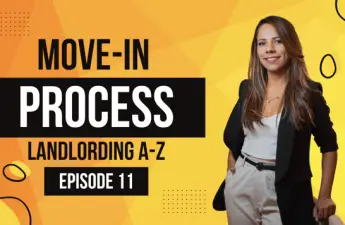For independent landlords, ensuring timely rent payments is crucial to maintain financial stability. As property owners adapt to evolving tenant dynamics, many are turning to online rent payment platforms to streamline financial processes. However, the challenge of late rent payments persists. This article discusses the importance of addressing late payments promptly, explores the best online rent payment services for landlords, and provides a comprehensive guide on what to do if a tenant is not paying rent.
Utilizing Online Rent Payment Platforms
The best online rent payment service for landlords streamlines the rent collection process, offering a number of advantages such as:
1. Convenience
You can simplify your financial processes with easy-to-use online interfaces, allowing tenants to make payments at their convenience.
2. Speed
Rent payment platforms accelerate the rent collection process by receiving payments quickly through online transactions, reducing delays and ensuring a consistent cash flow.
3. Security
The best online rent payment services for landlords ensure financial security with encryption, safeguarding sensitive information and providing a trustworthy platform for both landlords and tenants.
4. Tenant Satisfaction and Efficiency
Beyond the transactional benefits, the user-friendly nature of online payment services contributes to tenant satisfaction, improving overall efficiency in rent collection processes.
Setting Clear Rent Payment Policies
To prevent late payments, landlords can establish robust rent payment policies by clearly communicating expectations, due dates, and consequences. Transparent guidelines empower tenants with a clear understanding of their financial responsibilities, fostering a proactive approach towards timely payments.
By articulating policies explicitly, landlords create a framework that not only discourages late payments but also promotes a harmonious landlord-tenant relationship built on mutual understanding and adherence to agreed-upon terms.
Providing Reminders and Notifications
Reminders and notifications play a pivotal role in avoiding late rent payments. By implementing regular email or text reminders, landlords assist tenants in maintaining awareness of their payment obligations.
These proactive notifications serve as gentle prompts, helping tenants stay organized and on schedule, ultimately contributing to a more consistent and reliable rent payment process.
Offering Flexible Payment Options
Providing flexible payment options significantly contributes to on-time rent payments by accommodating diverse tenant needs. Offering a range of payment methods and schedules empowers tenants, allowing them to choose options that align with their financial circumstances. This flexibility reduces the likelihood of financial strain and facilitates timely payments, fostering a positive landlord-tenant relationship.
Ultimately, this adaptability in payment structures creates an environment where tenants can comfortably meet their financial commitments, contributing to a more reliable and consistent rent payment process.
Understanding Tenant Circumstances
Landlords can proactively address tenants’ financial challenges by prioritizing open communication and a cooperative approach. Establishing a channel for tenants to express their difficulties fosters trust and enables landlords to gain insight into individual circumstances.
A compassionate understanding of financial struggles allows landlords to work collaboratively with tenants, exploring mutually beneficial solutions such as temporary rent adjustments or personalized payment plans. This empathetic engagement not only supports tenants during challenging times but also strengthens the landlord-tenant relationship, promoting a sense of shared responsibility and commitment to overcoming obstacles together.

Enforcing Late Fees
Landlords should enforce late fees for overdue rent payments based on clearly defined policies and consistent enforcement. Establishing precise guidelines in the lease agreement, including the specific amount and the grace period, sets expectations for tenants. Consistent application of these policies, without exceptions, sends a strong message about the importance of timely payments.
Typically, late fees are triggered after the expiration of the agreed-upon grace period. By adhering to a transparent and unwavering approach, landlords encourage tenants to prioritize on-time payments, fostering a sense of responsibility and accountability within the rental relationship.
Implementing Grace Periods
Grace periods contribute to a more lenient approach to late rent payments by offering tenants a brief extension before late fees are applied. This provision allows tenants a short window beyond the due date to make their payment without incurring additional charges.
Grace periods promote understanding and flexibility, recognizing that unforeseen circumstances may occasionally affect tenants’ ability to pay on the exact due date. This considerate approach fosters a positive landlord-tenant relationship, providing tenants with a reasonable timeframe to address any temporary financial constraints without facing immediate penalties. This helps encourage a more cooperative and understanding rental environment.
Legal Considerations and Documentation
If a tenant consistently fails to pay rent on time, landlords can take legal steps to address the issue. It is crucial to understand local landlord-tenant laws to ensure compliance. Typically, landlords may issue a formal notice, such as a pay or vacate notice, providing the tenant with a specified period to remedy the situation. If the issue persists, legal action, such as eviction proceedings, may be necessary.
Thorough documentation of all communication, late payment notices, and any relevant agreements is essential for legal recourse. This comprehensive record strengthens the landlord’s position in legal proceedings and ensures adherence to legal protocols.
What to Do if Tenant Is Not Paying Rent
When a tenant is not paying rent, landlords should take several steps to address the situation. Firstly, initiate open communication with the tenant to understand the reasons behind the non-payment. If the matter persists, issue formal notices, such as a pay or vacate notice, outlining a specific timeframe for the tenant to remedy the situation. Continuing non-compliance may necessitate seeking legal advice to explore eviction proceedings in accordance with local landlord-tenant laws.
It’s crucial to document all communication and actions taken throughout the process to strengthen the landlord’s position in case legal action becomes necessary. Regular communication and a clear, documented approach can help navigate these challenging situations.
Evaluating Rent Payment Platforms
Landlords can choose the best rent payment platform for their needs by carefully evaluating several factors.
- Consider the features offered by the platform, ensuring they align with the specific requirements of the rental property.
- Prioritize platforms with robust security measures to safeguard sensitive financial information.
- Explore user reviews to get valuable insights into the platform’s performance and user satisfaction.
- Look for platforms that offer a user-friendly interface and efficient customer support.
Ultimately, a thorough assessment of features, security measures, and real-world user experiences will guide landlords in selecting an effective and reliable rent payment platform tailored to their unique needs.
Landlord Gurus Takeaway
Landlords grappling with late rent payments can navigate challenges effectively through a strategic blend of proactive measures, transparent policies, and open communication. Embracing online rent payment platforms, setting clear expectations, providing flexibility, understanding tenant circumstances, and enforcing late fees with grace periods form a holistic strategy.
By adopting these practices, landlords can foster a collaborative relationship with tenants, promoting timely payments and maintaining financial stability in the rental property. Through a thoughtful and comprehensive approach, landlords can address and mitigate the impact of late rent payments on their real estate investments.
Disclosure: Some of the links in this post are affiliate links and Landlord Gurus may earn a commission. Our mission remains to provide valuable resources and information that helps landlords manage their rental properties efficiently and profitably. We link to these companies and their products because of their quality, not because of the commission.




